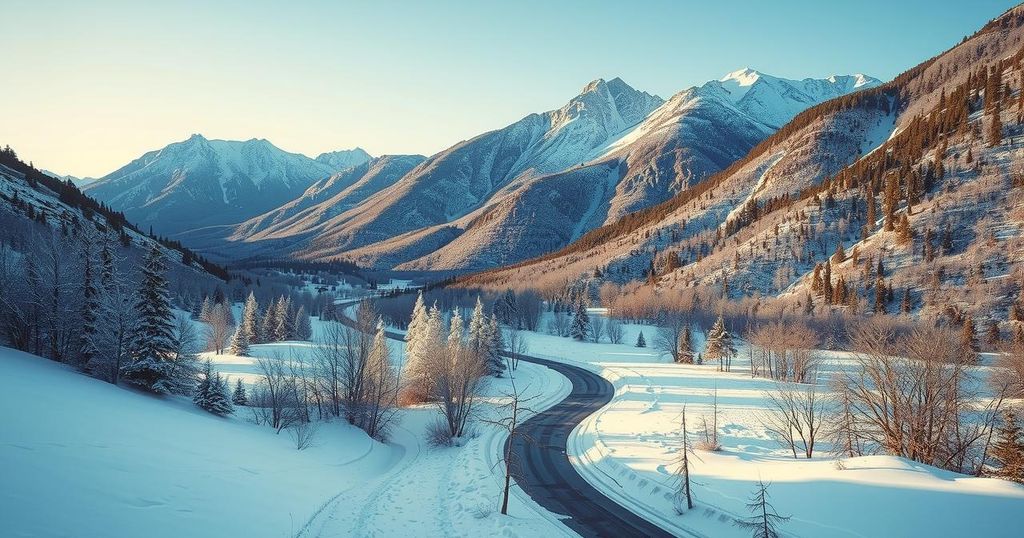Mountain West States Experience Shorter Winters Due to Climate Change

Residents of the Mountain West are facing a potentially shorter winter season, with reductions ranging from two to ten days due to climate change. Warmer climates in the Southwest are seeing a more significant impact compared to higher-elevation states. These changes threaten ski resorts, agricultural activities, and water supplies, warranting urgency in addressing climate-related challenges.
This winter, residents in the Mountain West can expect a winter season that could be reduced by two to ten days due to the implications of climate change, as reported by Climate Central. Regions such as Arizona, New Mexico, and Nevada are experiencing more severe reductions, averaging about ten below-freezing days annually, largely due to their naturally warmer climates. Kristina Dahl, vice president of science at Climate Central, explained this phenomenon, highlighting that minor temperature increases can significantly affect whether precipitation occurs as rain or snow.
In contrast, states at higher elevations like Wyoming, Montana, Utah, and Colorado are witnessing a milder impact, with Wyoming losing only two below-freezing days on average. Dahl emphasized that while Wyoming is warming, it remains above the critical temperature threshold needed for substantial winter day loss. Idaho and Colorado are also experiencing a decrease, each averaging a loss of four winter days.
The forecasted reductions have substantial implications for winter sports, particularly ski resorts that may need to consider adjusting their operational seasons. Additionally, changes in winter weather patterns could lead to ecological challenges. As Dahl noted, warmer winter temperatures can cause early flowering of plants, which may result in a mismatch with the timing of pollinator activity, jeopardizing crop yields. Furthermore, reduced snowfall raises concerns regarding future water supplies, as the snowpack is vital for moisture replenishment.
This collaborative report originates from the Mountain West News Bureau, which encompasses several public radio stations across regions including Wyoming, Idaho, and New Mexico, alongside support from the Corporation for Public Broadcasting.
Climate change is increasingly becoming a pivotal concern for the environment and various sectors that rely on seasonal changes, particularly in the Mountain West states. The reduction of below-freezing days signifies shifts in regional climate patterns that can lead to diminished snowfall, affecting ecosystems, agriculture, and winter recreation industries. Understanding the trends of these winter day reductions offers insight into broader environmental changes and emphasizes the urgent need for climate mitigation strategies.
In summary, the alarming trend of reduced winter days in the Mountain West due to climate change poses significant challenges for local ecosystems and economies. With some states facing losses of ten below-freezing days annually, the impact on ski resorts, agricultural productivity, and water supplies remains a serious concern. As articulated by Kristina Dahl, these changes not only influence winter sports and activities but also threaten pollination processes essential for crop sustainability. The cumulative effects of these climate shifts call for immediate attention and proactive measures to address the ongoing climate crisis.
Original Source: www.kanw.com







